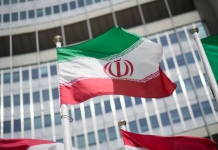DM Monitoring
Istanbul: The first high-level talks between Ankara and Washington after the administration of Joe Biden took office took place between Turkey’s Presidential Spokesperson Ibrahim Kalın and U.S. National Security Adviser Jake Sullivan this week.
Although there are some differences in the readouts of the phone call of the two sides, both put forth their expectation of a strong, sustainable and constructive relations model in the new period. It was stated that both sides were on the same page in regards to this. Moreover, it was underlined that alliances including NATO must be strengthened, while a political solution must be prioritized for conflict areas such as Syria and Libya.
According to a statement by the presidency, Turkey-U.S. bilateral relations as well as the issues of Syria, Libya, the Eastern Mediterranean, Cyprus, Afghanistan, Nagorno-Karabakh, COVID-19 and the international climate were discussed.
The statement from the White House, on the other hand, said that Sullivan “conveyed the administration’s intention to strengthen trans-Atlantic security through NATO, expressing concern that Turkey’s acquisition of the Russian S-400 surface-to-air missile system undermines alliance cohesion and effectiveness.”
The U.S. side in its statement welcomed the exploratory talks between Turkey and Greece, while it also signaled continued support for the U.N. plan on Cyprus.
Looking at all these statements, it is thought-provoking that the U.S. administration did not highlight anything regarding its policies on Syria, Libya, the Caucasus and the Middle East during such a call since it is present on the field in all these regions either on its own or with its NATO ally Turkey.
On the other hand, from Turkey’s point of view, it seems that the new Biden administration’s policy on Syria is not clear yet. Twenty civilians died in a bomb attack by the PKK’s Syrian affiliate, the YPG, which Washington has defined as a “tactical ally” since the Barack Obama period, in Syria’s Azaz, Afrin and al-Bab last week. It was striking that the U.S. State Department in its condemnation statement did not mention the perpetrators of the terrorist attack, the YPG.



